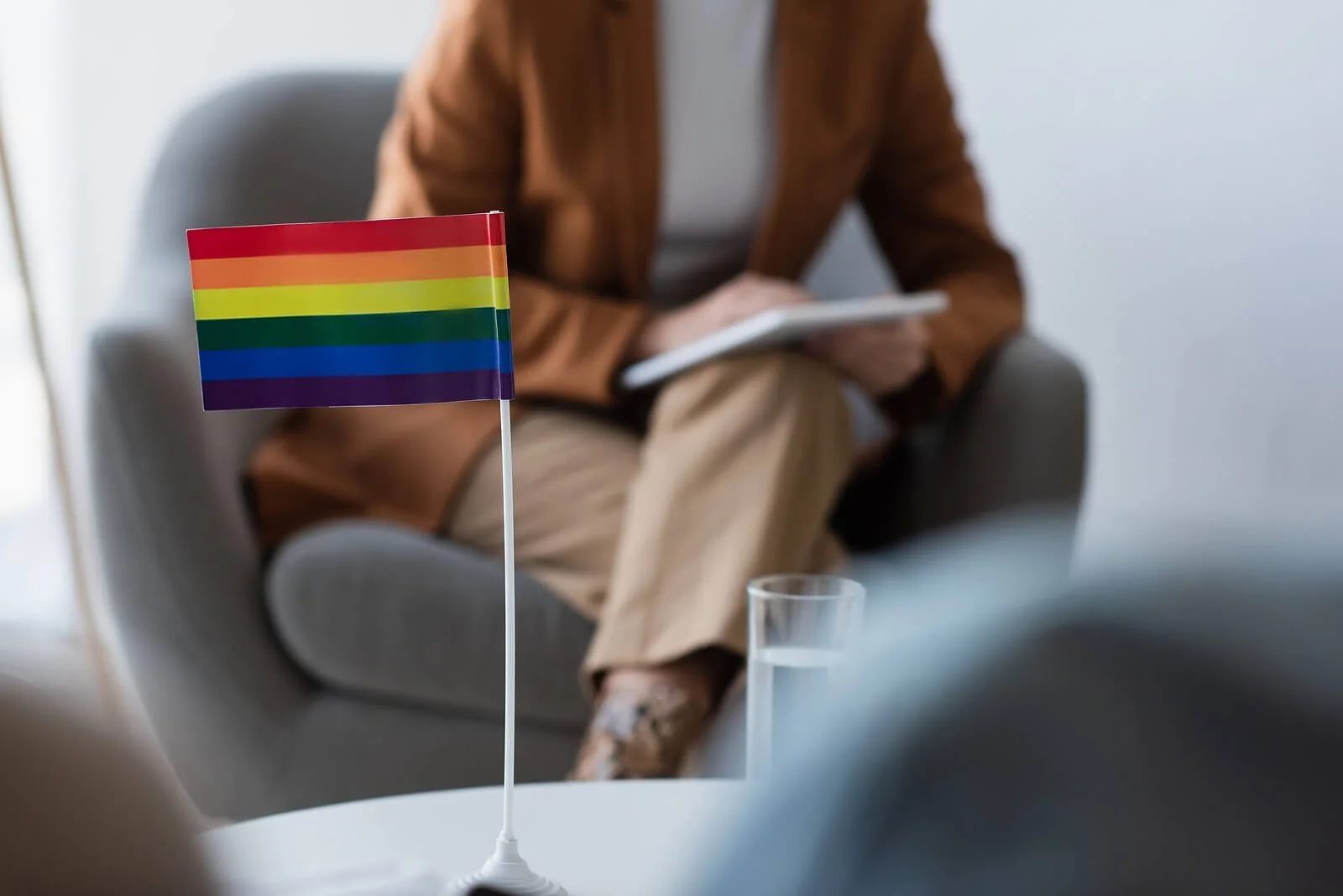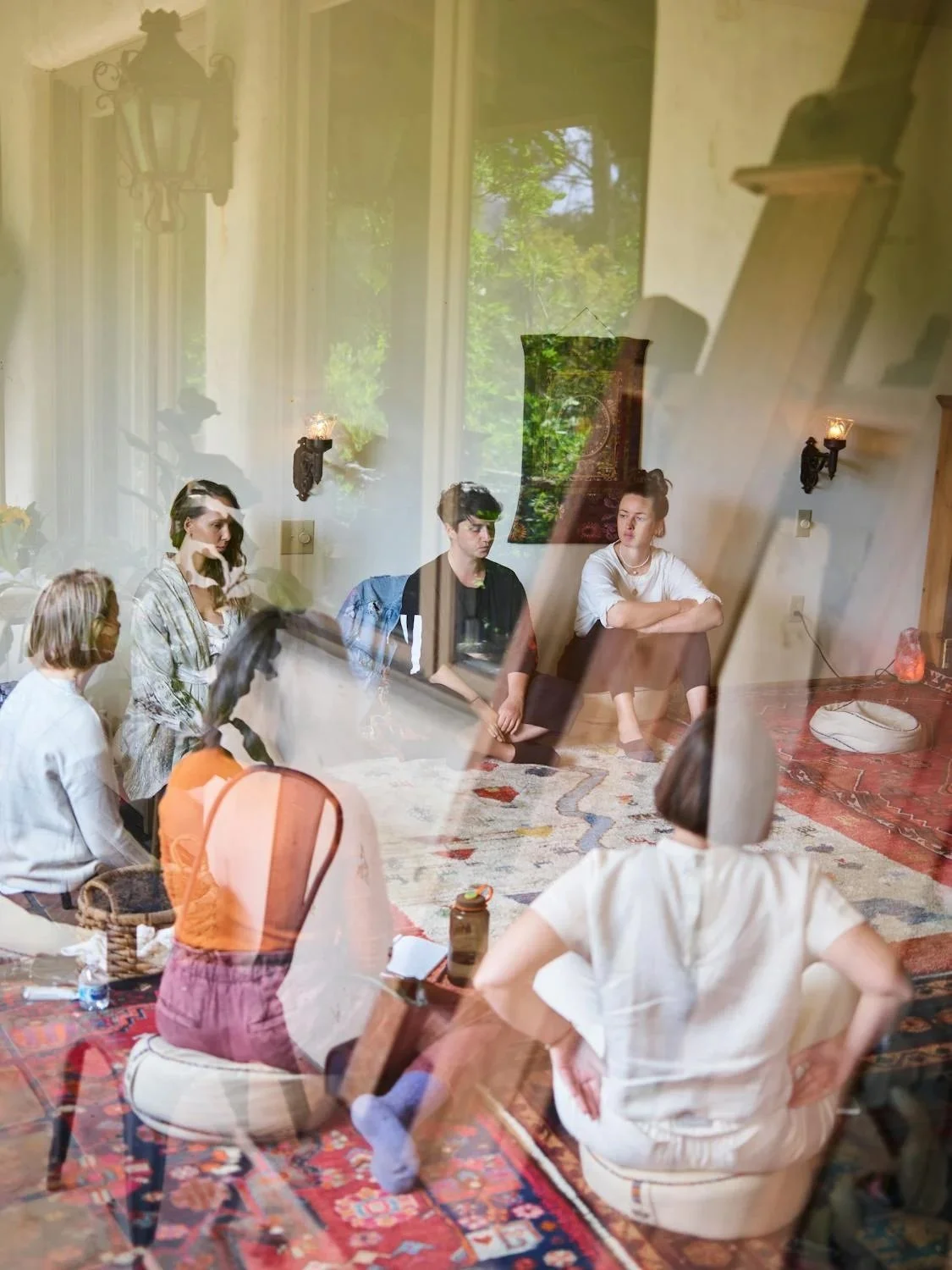Bisexual Invisibility: Understanding The Quiet Mental Health Crisis Faced By Bisexual People
In the dynamic sphere of LGBTQ+ issues, “bisexual invisibility,” sometimes also called “bisexual erasure,” is an important piece of the puzzle, however, it is not often at the forefront of the conversation. East Side Therapy is dedicated to educating about important topics like this and creating a safer and more affirming environment for LGBTQ+ people.
Bi invisibility, or bi erasure, is when the experiences of bisexual people are overlooked, dismissed, or flat out denied by society. It can look like statements such as, “bisexuality is just a stop on the way to being gay or lesbian,” “it’s just a phase,” or “you just haven’t made your mind up yet.” It can also look like the absence of bisexual identities in media, pop culture, and even within the LGBTQ+ community itself. Regardless of what form it takes, this erasure can have significant effects on the mental health of those who identify as bisexual.
THE UNIQUE MENTAL HEALTH STRUGGLES OF BISEXUAL INDIVIDUALS
Increased Risk: Studies have shown that bisexual individuals experience elevated rates of mental health distress than their heterosexual, gay, or lesbian peers. This comparison is not meant to minimize the mental health issues faced by other populations; however, it is important to consider why this is happening. The research suggests that the experience of consistently being invalidated or overlooked can lead to higher rates of anxiety, depression, and suicidality. Additionally, the isolation that bisexual individuals experience compounds the existing distress and means that they are less likely to access support.
Identity Crisis: Not fitting neatly into one box can create feelings of confusion and uncertainty when it comes to identity and view of self. Bisexual individuals often talk about not feeling “queer enough” or struggle to know where they fit when their experience does not fully align with one end of the spectrum or the other. This lack of internal “knowing” or sense of belonging can cause emotional pain, suffering, and loneliness as well as self esteem issues.
Internalized Binegativity: When a person’s sexuality is repeatedly interrogated, they can begin to develop internalized biphobia, meaning that they start to doubt their own feelings and attractions, or even see them as “bad,” “wrong,” or “weird.” This can result in significant psychological distress.
Dating Issues: Bisexual individuals talk about struggling in their romantic and dating lives, often receiving feedback from potential partners that they are threatened by their attraction to more than one gender because it creates “more competition.” Potential partners also express fear that someone who identifies as bisexual is just “confused” and will ultimately realize they are gay or straight instead. Even when a bisexual person does find a partner, their experience while dating that person often feels like an erasure of half of their identity (i.e. they are seen as heterosexual when in a heterosexual relationship and as gay when in a gay relationship rather than being known as bisexual all the time).
Double Discrimination: In addition to the discrimination that all LGBTQ+ folks face related to heterosexism and cissexism, bisexual individuals are up against a second form of discrimination associated with monosexism, which is the belief that we can only be attracted to one sex or gender (heterosexuality or homosexuality) or that this trajectory of attraction is somehow more legitimate. This “double discrimination” creates further alienation, barriers to resources, and cognitive dissonance for bisexual people.
Lack of Support: Bisexual folks face a high risk of isolation and alienation A lack of visibility and representation can make it difficult to connect with others who understand their experiences. This isolation is often exacerbated by bi invisibility within both LGBTQ+ and hetero spaces, as they might feel like they don’t fully belong to either community.
challenges within the lgbtq+ community
Unfortunately, bi erasure does not only happen at the hands of those outside the LGBTQ+ community as it can be a form of in-group discrimination, knowingly or unknowingly, used out of self-protection or as a result of internalized homophobia. This intra-community biphobia can pose additional barriers for bi folks seeking support and understanding.
HOW CAN WE BETTER SUPPORT BISEXUAL INDIVIDUALS?
Validation: The simple act of acknowledging and affirming the experiences of bisexual people can significantly improve the issues discussed earlier. Allies can help to combat invisibility by validating and the existence and importance of the bisexual experience.
Support: Active allyship means fostering environments where bi people feel accepted and safe. This might look like support groups that are specifically geared towards the bisexual experience, affirming workplace policies, and, on a more intimate level, creating safe space within social circles.
Representation: Making sure that bisexual characters and experiences are represented in the media, both accurately and in a positive light is extremely important. This can help challenge stereotypes and offer bisexual people more role models as well as a greater sense of belonging.
Education: Increasing awareness about bisexuality and the unique challenges faced by bisexual individuals is crucial. This involves educating both the general public and members of the LGBTQ+ community about the realities of bisexuality and the importance of inclusive representation.
SO WHERE DOES THIS LEAVE US?
The thing is that the term “bisexuality,” just like any other label, is our attempt as human beings to make sense of the world. Evolutionarily, it is in our nature to put things into neat boxes (especially binary ones), assign labels, and call it a day because it helps us to more easily recognize patterns and keep ourselves safe. It provides an illusion of certainty. This leaves very little room for nuance, though. Our understanding of gender and sexuality has continued to evolve and we are better able to see that these things ultimately exist on a spectrum. Hopefully this means we can more readily acknowledge the truths that lay in the “in-between” and learn to tolerate the the uncertainty more compassionately and gracefully.
Bi invisibility is a pervasive issue that has far-reaching implications for the mental health and well-being of bisexual individuals. By understanding and addressing the unique challenges faced by this community, we can take meaningful steps towards fostering a more inclusive and supportive environment.
what role can therapy play when it comes to BI INVISIBILITY?
If you are someone struggling with psychological distress due to bi invisibility or sexuality, whether that is in the form of depression, anxiety, suicidal ideation, or PTSD, Individual Therapy with a therapist who specializes in LGBTQIA+ and gender issues can help you feel seen, gain clarity, and find relief. Having a safe space dedicated to your unique experience with guaranteed support and validation can change everything.
Group Therapy can be another way to find community with others who share a similar experience. Bisexual-specific support groups can offer this kind of opportunity. Contact us if you need help finding support that best meets your individual needs.
FIND SAFETY AND ACCEPTANCE AT EAST SIDE THERAPY
At East Side Therapy, we understand that, when it comes to exploring issues related to sexuality, finding a therapist you feel safe with is the most important thing. You never know what assumptions or biases a person is holding, so to open up to a stranger is extremely vulnerable. This is why finding a queer-affirming therapist, or even someone who specializes in LGBTQ+ issues is a great first step. Every therapist at East Side Therapy is LGBTQ allied and affirming. Some of our therapists specialize in gender-affirming care and LGBTQ+ issues.
Learn more about our team of therapists OR schedule a free consultation call here.
more services at east side therapy
East Side Therapy offers a wide variety of mental health services for individual adolescents and adults, couples (poly and kink inclusive), and families. We provide virtual therapy throughout California, as well as in-person sessions at our Echo Park office in Los Angeles, CA. Our strong team of therapists specialize in issues such as depression, anxiety, trauma therapy, EMDR, LGBTQ+ issues, therapy for women and perinatal mental health, highly sensitive people, eating disorders, teen therapy, neurodivergence (ADHD, Autism, AuDHD), and more. Please visit our services page to read more about the types of therapy we offer and a full list of specialties. You can also read more about each of our therapists on our team page. For additional information, check out our FAQ, About Us, Groups, and Blog.




